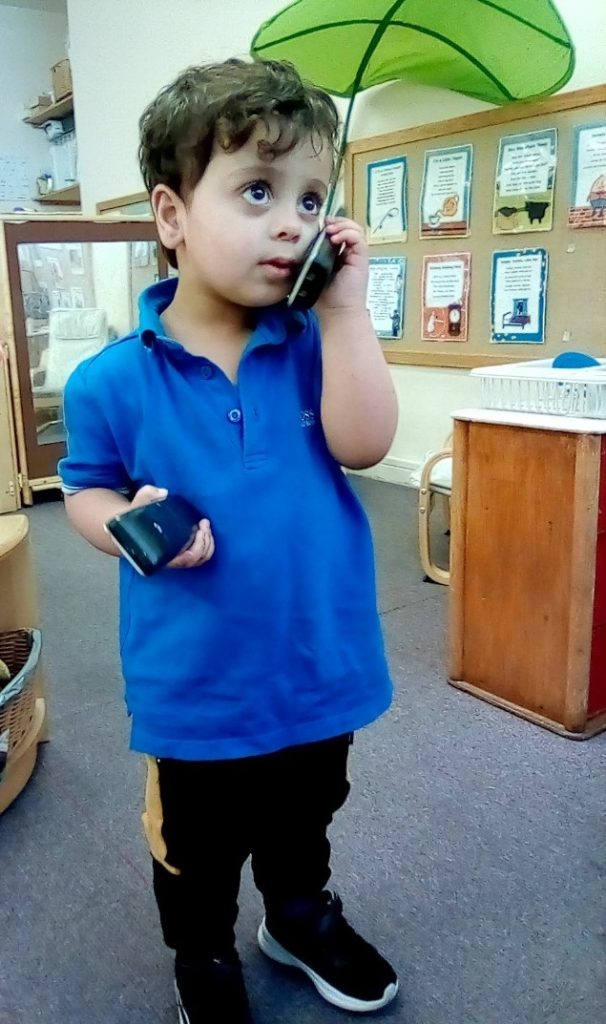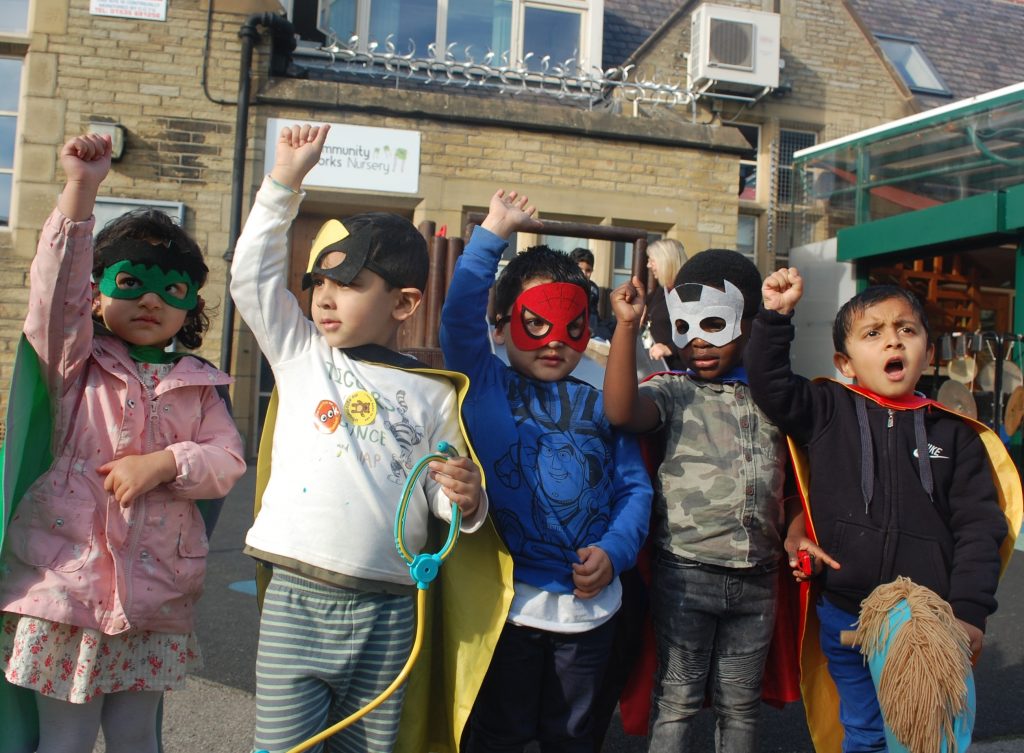Policies and Procedures

Attendance
If your child is not coming to nursery because of sickness or another reason call us please.
Although nursery education is non-statutory, it is very important that having gained a place, your child attends regularly. Not only do children make better progress if they attend every day, but it means the best possible use is being made of scarce nursery places. If you have any problems about bringing your child regularly, please talk to us about it – we would love to try and help with the problem.
Please ensure that your child arrives at nursery in time for registration which is taken within the first 15 minutes of both the morning and afternoon sessions. Please let us know if you’re child is absent due to illness, so that it can be recorded correctly, and in advance for any medical appointments and holidays. Holidays are authorised for up to 2 weeks, but can be extended in exceptional circumstances. If your child is absent for 4 weeks they may be removed from the register and their nursery place vacated for someone else.

Collecting Your Child
Please make safe arrangements for collecting your child from school. Tell the staff in advance if someone different is coming to collect your child so we can give a password and reassure your child. Please do not send young brothers and sisters who may not be able to look after little children when crossing busy roads.
Sick Children
Please do not bring your child to nursery if they are unwell as they may spread their illness to other children and staff. If you are not sure what to do, call us and we will advise you 01274 200589
Medication
If your child is on regular medication or needs it in the case of an medical emergency you must provide the nursery with this medicine. It should be unopened and labelled with the child’s name and dosage to be used. You will be asked to register this medicine with us prior to nursery giving it to your child. There are some medicines that require staff to be trained before hand, please ensure you inform the nursery prior to registration.
If your child is on Antibiotics they should be at home until they have received the prescribed dose 24 hours before coming back to nursery however they must also be well enough to return.
Special Education Needs
Our Admission Arrangements for Children with Special Educational Needs
We recognise the vital role of parents/carers in the identification, assessment, and response to their children’s special educational needs. We will work in true partnership with parents/carers, valuing their views and contributions and keeping them fully involved in their child’s education.
Children with special educational needs are welcomed into our early years setting, as are all our children. We may ask parents to give us further details of professionals involved with their child. When we know that a child may have a special educational need or disability before they start at our setting, we will endeavour to set up a good transition for that child into our setting involving child, parents/carers and any outside professionals known to the child. This may involve the child visiting our setting on several occasions and/or a home visit by one of our members of staff.
Sometimes a child may not appear to have a special need before they start nursery and it only becomes apparent once the child has settled into nursery. When this happens we will observe and monitor your child’s level of development and involve the professionals who can help. We will, throughout the process, seek the parents’ permission to do this, and keep parents informed every step of the way. We will also, in some cases, be able to help parents claim Disability Living Allowance; if it is evident the child needs more support at home than a child without these development delays.
Where a child needs more support, we will apply for funding to ensure we have the staffing in place to do this before the child is admitted. We will work with other professionals and organisations to ensure this happens for example, portage, pediatricians, speech and language, health visitors or any other professionals supporting the child’s health needs. Once we have all supporting evidence in place, we will approach Bradford Early Years Inclusion panel for funding .
The Nursery promotes Fundamental British Values – What is this?
Democracy; make decisions together
As part of the focus on self-confidence and self-awareness as cited in Personal, Social and Emotional Development:
We encourage children to see their role in the bigger picture, encouraging children to know their views count, value each other’s views and values and talk about their feelings, for example when they do or do not need help.
When appropriate, we demonstrate democracy in action, for example, children sharing views in a group session with a show of hands.
We support the decisions that children make and provide activities that involve turn-taking, sharing and collaboration. Children are given opportunities to develop enquiring minds in an atmosphere where questions are valued.
The Rule of law: understanding rules matter
As part of the focus on managing feelings and behaviour: as cited in Personal Social and Emotional Development.
We ensure that children understand their own and others’ behaviour and its consequences, and learn to distinguish right from wrong.
We negotiate rules and the codes of behaviour with the children, for example, to agree the rules about tidying up and ensure that all children understand rules apply to everyone.
Individual liberty: freedom for all
As part of the focus on people and communities as cited in self-confidence and self-awareness Personal Social and Emotional development and Understanding the World:
Children should develop a positive sense of themselves. We provide opportunities for children to develop their self-knowledge, self-esteem and increase their confidence in their own abilities, for example through allowing children to take risks on an obstacle course, mixing colours, talking about their experiences and learning.
We encourage a range of experiences that allow children to explore the language of feelings and responsibility, reflect on their differences and understand
we are free to have different opinions, for example in a small group discuss what they feel about transferring into Reception Class.
Mutual respect and tolerance: treat others as you want to be treated
As part of the focus on making relationships , people and communities, managing feelings and behaviour as cited in Personal Social and Emotional development and Understanding the World:
We work to create an ethos of inclusivity and tolerance where views, faiths, cultures and races are valued and children are engaged with the wider community. Our planning and practice is geared to supporting children to acquire a tolerance and appreciation of and respect for their own and other cultures; know about similarities and differences between themselves and others and among families, faiths, communities, cultures and traditions and share and discuss practices, celebrations and experiences.
We encourage and explain the importance of tolerant behaviours such as sharing and respecting other’s opinions.
We promote diverse attitudes and challenge stereotypes, for example, sharing stories that reflect and value the diversity of children’s experiences and providing resources and activities that challenge gender, cultural and racial stereotyping.
Staff will:
· Consistently and actively promote tolerance of other faiths, cultures and races
· Challenge gender stereotypes, including routine segregation of girls and boys
· Work to engage children and families with the wider community
· Challenge behaviours (whether of staff, children or parents) that are not in line with the fundamental British values of democracy, rule of law,
individual liberty, mutual respect and tolerance for those with different faiths, beliefs and lifestyle choices
Behaviour
“Whenever the child behaves in a way that does not please us we are ready to act. We do so out of our own good or bad humour at the moment, out of a habit of doing so, out of our principles, but rarely out of a full knowledge of what in the child’s mind has led him to do the thing we don’t like. Yet without that knowledge we cannot be sure we are dealing with him in the way most likely to help him” Susan Isaacs 1929
We believe that our behaviour policy is a key strategy in supporting children’s learning and development, raising achievement and working with families. It is an important part of our curriculum for Personal, Social and Emotional development which is a core area of learning in the Early Years Foundation Stage, and is closely linked to successful learning in all areas. It also forms a key part of citizenship and children learning about their role in society.
We know that children respond best where there is mutual, courtesy, kindness and respect.
We wish to promote strategies which encourage and support children’s self-esteem, empathy for others and a respect for the world in which they live. We wish to avoid strategies which may lead to fear, humiliation, guilt or rejection.
We work consistently to ensure that each child has a strong relationship with their key person. In turn the key person can help the child to develop a wider network of relationships with other children and the wider staff team. Warm, caring emotionally-attuned relationships set a very positive climate for children’s social and emotional development and help to promote good behaviour.
“So often, children are punished for being human. They are not allowed to have grumpy moods, bad days, disrespectful tones or bad attitudes. Yet, we adults have them all the time. None of us are perfect. We must stop holding our children to a higher standard of perfection than we can attain ourselves” Rebecca Eanes
